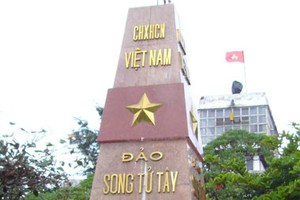Currently, economic experts warn that expanding investment by state-owned enterprises may cause a waste of resources in the state budget and unhealthy competition. The numbers of state-owned enterprises acting in one area and wanting to expand their investment to others increases daily.

The Vietnam Shipbuilding Industry Corporation (Vinashin) announced last month it had signed an agreement with Malaysia’s budget airline, AirAsia to form a low priced airline named Vina AirAsia. The actions of Vinashin were subsequently criticized by the public and the Government rejected the Vinashin-AirAsia agreement last week.
Vinashin is a state-owned corporation which is successful in the shipping and shipbuilding industry. The corporation has won hefty contracts to build passenger ships and oil tankers for other countries, thus showing the great confidence overseas clients have in the company.
The Government has issued bonds worth approximately VND7,000 billion (US$434 million) to help the corporation invest in the development of improved strategic policies. The corporation has expanded its investment to industrial zones, such as a power plant, and service of a cheaper priced airline.
However, there are already state-owned corporations acting in these fields such as Sabeco, Habeco and Vietnam Airlines.
Inadvertently, the Government uses the state budget to help its enterprises compete against each other.
In fact, many state-owned corporations desire to invest in the high profit sectors of financial services and real estate. They consider the expansion of investment into these fields as an advantage. Some of them have opened banks and security companies to service their development strategy.
Meanwhile, their ability to attract capital from the stock market for investment in a productive capacity is low.
Vietnam National Textile and Garment Group Vinatex was considered to be rather dynamic when it submitted its application to the Government to form an industrial bank. It has also established a security company, which has just introduced plans to issue bonds worth VND8,000 billion (US$500 million) over the next two years.
Previously, Thanh Cong Textile and Garment Company, a Vinatex member, invested 50% of its business activities in the financial services and real estate sectors.
Economic experts are alarmed by the hasty establishment of banks and security companies. Experts say that high-profit sectors require a highly qualified professional work force, which Viet Nam currently lacks.
Due to this skill shortage, this situation will directly affect the health of the country’s economy. The state-owned enterprises’ lack of management ability of their business is the big risk for economy.
A banker has expressed his worry that the impulsive opening of banks is like the appearance of the mass of credit agencies in the 1990’s. During this time, many credit agencies collapsed and caused the financial collapse of hundreds of thousands of households.
The Law of Enterprises permits every citizen, organization to have the right to do business without using the budget. How and where the organizations invest is their own concern. The Government does not interfere but has the task of creating the best investment environment possible.
The Government needs to reconsider the state-owned enterprises overlap and its creation of unhealthy competition between the enterprises. The recent influx of these types of enterprises may result in the Government having to improve infrastructure and the social welfare of the community.























